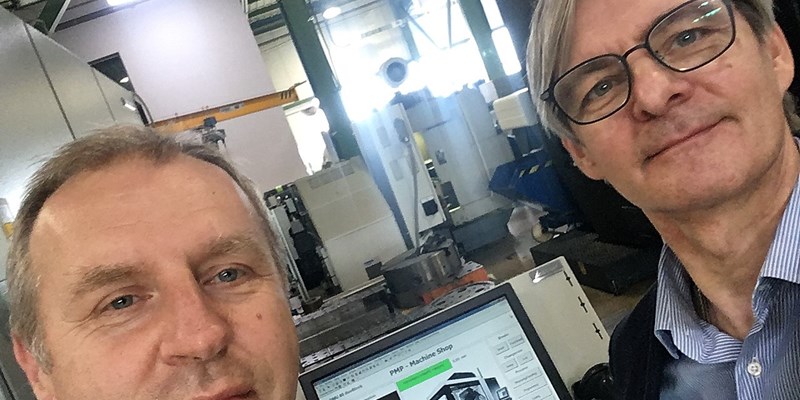In this interview, we would like to offer you more insight into PMP Poland and its managing director Andrzej Strzelczyk. (on the right) Enjoy the read!
PMP in short
Precision Machine Parts Poland Sp. z o.o. (PMP), part of Tembo, was established in 1997.
The company is located next to our ITM Poland facility and is a qualified supplier to a number of different industries such as food (including tobacco), machine tools, packing, printing, medical and aviation. Products made by PMP are delivered as either single parts or sets of parts, but the majority are ready-to-use and tested sub-assemblies or components of machinery and technology lines. PMP’s core business is prototype production and small-batch production. The company boasts a very impressive high-tech machine park and skilled employees who create high-quality products.
Want to learn more? Let's read on.
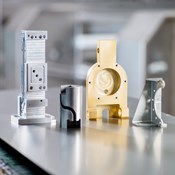
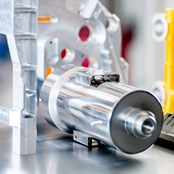
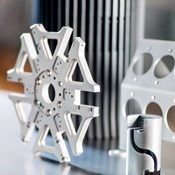
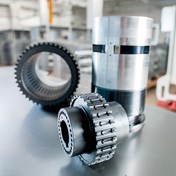
Andrzej, could you please introduce yourself and tell us a little bit about your background and role at PMP?
I joined ITM Poland in 1993 – two years after I graduated and, having worked at trading companies for only two years, with rather limited experience. I am really proud that I was a part of the ITM Poland team (ITMP) in those start-up days. Believe it or not, back then ITMP imported almost everything from Holland, including items like paint, bolts, screws and nuts, and electrical cables. But this is not surprising given the fact that Poland had only transitioned from the ‘socialist way’ of doing business to an open market economy four years earlier.
At the end of my adventure at ITMP, I was responsible for the main supply chain, including drawings and commercial parts, warehousing, logistics and transportation.
In 2001, Andrew Stanikowski asked me to move to PMP and a few days later I made the switch from customer to supplier. I’m not sure how he knew that I really wanted to work for and develop this part of the Polish business. I felt that PMP offered great opportunities and held vast amounts of hidden potential.
When I joined PMP, sales amounted to 2.5 million euros, mostly generated by sheet metal processing and construction activities, minor machining, and sub-assembly activities.
Sales have now increased sevenfold with almost 50% generated by our Assembly Division, with our Machining and Sheet Metal Divisions offering a proportional contribution to the rest of PMP’s output. And what’s more, PMP is still growing! Of course, I like that very much!
Could you please tell us some more about the industries & markets you work for?
Besides the Tembo companies, we supply most of our parts, components and sub-assemblies to the packing machinery industry, mainly for pharmaceutical and food technology processing lines. Within this group, our biggest customer is Bosch Verpackung Division, with 9 locations across Germany, Switzerland and Great Britain. Another big part of PMP’s output is dedicated to another key player in packing technology: BOBST from Switzerland.
Next is our machine tool building industry. At present, our main customer within this group is Heller from Germany, a worldwide leader in this field that provides complex solutions for powertrain production in the automotive industry. Currently, we are executing long-term agreements for the delivery of housings for CNC 5-axis milling machines that are ultimately bound for Daimler Benz and Fiat factories in Germany and Italy. We also supply special projects for the automotive, printing and plasma technology industries. Here, our main customers are the Bosch Group, STORK from Holland, and Oxford Instruments from England. So, taking into consideration the cooperation with Tembo companies, PMP serves a highly diversified group of customers, industries and markets; this strengthens our business position.
Can you give us an impression of the prototypes that you are particularly proud of?
What makes PMP different from the rest of the Tembo companies is that we do not have our own products. Everything we supply is made according to customer specifications. On average, we produce 2500 different items in different quantities on a monthly basis.
40 percent of this volume involves completely new items, which means we need to prepare the full production process and do prototyping. Of course, there are simple loose parts but also complete assemblies that are part of machines or production lines.
Looking back, I am proud of those projects that helped PMP gain knowledge, skills and new competences that our company could later use as references to attract new customers or that allowed us to increase the added value of our products. Examples that spring to mind are the first complete housing for a CNC milling machine for the German company DMG in 2001, a wheel module for Capricorn in 2003 for ITMP, and part of a process line for the production of electrical windings in small drives used by the automotive industry for Bosch in 2005. As a matter of fact, the latter was the starting point for our successful ongoing cooperation with the Bosch Group.
Today, we produce eight different assemblies for our flagship Solaris machine alone, including pre-assembled module frame boxes, complete fan boxes, knife box units and covers.
What about your latest project?
At present, we are preparing a concept involving the complete housing for a new line of injection moulding machines for a globally leading customer from Germany. This includes the complete technical documentation, 3D models and prototypes.
We are also preparing a housing prototype for a new generation of CNC Milling Centres for one of our main customers from the machine tool industry. Sorry, I can’t disclose names here because of non-disclosure agreements.
Recently, we were also involved in the cost engineering of the next generation of covers for the Solaris machine.
I believe all projects offer PMP a solid basis for building up new competences in order to provide our customers with new products like the designing and cost engineering of covers and housings.
What would you say are the essential individual qualities needed to succeed in your line of business nowadays?
Individual skills are essential, but in our field teamwork is way more important.
The key to success is a combination of basic concept, correct technology implementation, CAD/CAM design and programming, logistics and production preparation, production processes with quality standards, and of course having the right people leading the process. If one individual in that chain fails, the final result simply won’t hold up!!
I think PMP’s biggest assets are its highly skilled, dedicated, strong and competent employees, supported by modern technology.
I would like to take this opportunity to thank all PMP team members for all the achievements we have realized in recent years. People really make the difference! We are all still constantly learning and growing together.
What challenges do you see for the future?
Customers are increasingly looking for complex solutions: designs and technical documentation based on concepts provided by them rather than drawings, sub-assemblies rather than loose parts, projects rather than single orders. Additionally, they expect short lead times and sharp prices. And then there is the advent of Industry 4.0 with its basic principle that by connecting machines, work pieces and systems, businesses can create intelligent networks throughout the entire value chain that can control each other autonomously. It means the further strong customization of products under the conditions of mass production supported by automation integrated with data exchange and manufacturing technologies.
Hard to imagine, but only a decade ago the standard in small-batch machining production was: 1 machine – 1 operator.
What steps are you taking to meet these challenges?
PMP has a solid basis. In-house strategic production processes like hardening, surface treatment, laser cutting and wire cutting are all of the highest quality. Our core business profile: because of single, small-batch and prototype production, we know the meaning of customized products.
Currently, automation including pallet changers or pallet warehouses integrated with CNC machines supported by up-to-date CAD/CAM software and clamping and fastenings systems are increasingly being introduced into the PMP production processes. In the coming months, we will have to gear most of our efforts to releasing the full potential of installed technology so that we can respond immediately to market demand. On the other hand, as mentioned earlier, we are also investing in our competences regarding design and cost engineering to enable PMP to make more complex offers.
Of course, we will continue to monitor market tendencies and technological advances. For example, if 3D printing technology becomes more useful for our production processes, we might consider implementing this. I would like PMP to be a market-driven organization.
If you had a magic wand that could change anything about your business, what would that change be?
I never think like that, it’s not helpful. It’s so much better to actually do something!
In my opinion, you can’t go against market expectations or market needs, or try to create or think about artificial conditions in business. It simply does not work.
On the other hand, I am more of a glass-half-empty than a glass-half-full kind of person. So from this point of view, the only situation that I could imagine wanting to use a magic wand would be to make something better or faster than it currently is.
What have been your best moments at PMP?
This might sound trivial, but the best moments for me are whenever I see new, advanced high-tech parts rolling from our production lines or when we are ready to dispatch new sub-assemblies, no matter if they are destined for existing customers or new ones; in many cases a new challenge was involved.
I feel satisfaction when I see big truck trailers leaving our premises with PMP products. Our highest score so far was five in one day!
Finally, I really enjoy it when new machinery or equipment is successfully implemented in the production process, especially if it is new technology and innovative for us. Good examples are the hardening technology which was introduced at our company in 2010 and our first turning-milling CNC centres.
And I’m sure I will also greatly enjoy the moment we successfully finish and introduce our current investment plan that focuses on automation in production processes.
What do you do to relax?
I cycle and play tennis almost every day. I also frequently attend live music and sport events, mainly across Poland and Europe.
I am also interested in wristwatches, particularly their internal mechanisms and design. I have substantial amounts of literature, books and catalogs on this subject and of course a small collection of mechanical wristwatches: both old and new. The funny thing is that most people think that the wristwatch is a good example of a precision tool, but in fact it is not. There is hardly any advanced mechanical construction with complicated parts in standard or mass-produced products. On the other hand, the most precise and most accurate multi-functional mechanisms are a synthesis between art and high-end technology! But what really makes me tick is music!
Who or what inspires you and why?
I am particularly inspired by people who follow their passion and individual leaders, managers and athletes who reach the top of their game through hard work, perseverance and training. I truly respect those who say they will win gold and then actually manage to do so.
I can find inspiration in both innovative and very basic products, and smart solutions or concepts as well. This could also be art, architecture or excellent design.
From a business perspective, I find it very inspiring to visit customers, competitors, suppliers, solution providers and producers from other industries. It’s not just about the products they offer, but also about how they are organized, what the production process looks like and what kind of tools or software they use.
In conclusion, I find the following quote very inspiring: nothing is impossible.
Thank you Andrzej!

